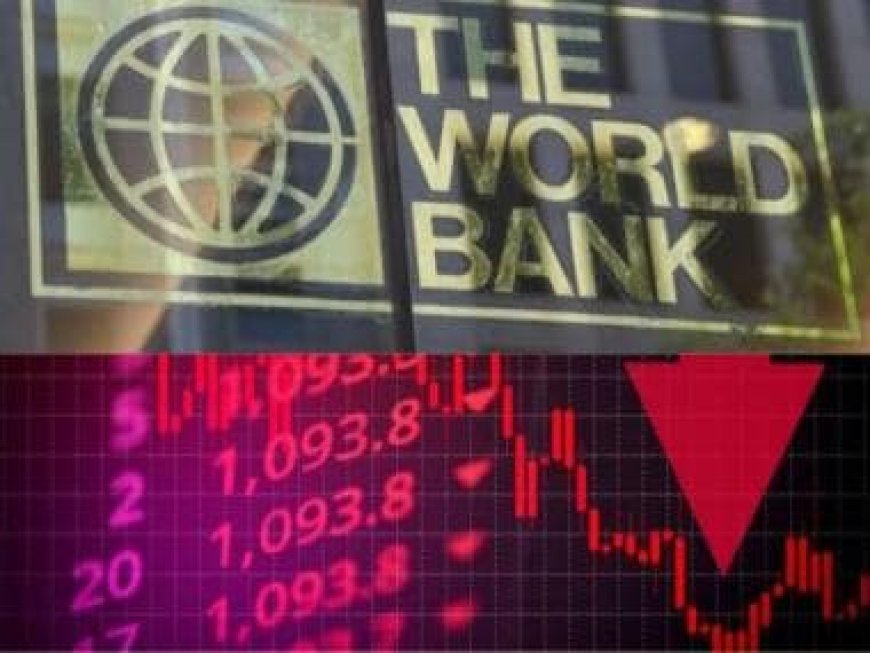World Bank slashes Pakistan's growth projection, warns debt burden may rise to 89.3 per cent of GDP till FY2027
World Bank slashes Pakistan's growth projection, warns debt burden may rise to 89.3 per cent of GDP till FY2027

The World Bank has forecasted that Pakistan’s GDP growth for the current fiscal year is expected to be 1.7 per cent, which falls short of the official target of 3.5%. The Bank also said that inflation is anticipated to rise to 26.5 per cent, exceeding the official estimate of 21.5 per cent.
The Bank has also projected a higher primary deficit of -0.4% of GDP, in contrast to the official target of +0.4 per cent that was agreed upon with the IMF. The global lender has also dismissed the possibility of debt restructuring or reclassifying Pakistan as a Highly Indebted Poor Country (HIPC). Instead, it has issued a warning about the increasing debt burden, which is projected to reach 89.3% of GDP by FY2027.
The World Bank has emphasised the challenges of implementing tax reforms due to the significant influence of political elites within the executive, cabinet, parliament, political parties, finance ministers, cabinet committees, and standing committees over tax policies.
According to the report titled “Pakistan Development Update: Restoring Fiscal Sustainability” released from Washington, DC, and the Bank’s office in Islamabad on Tuesday, the World Bank said, “Under adverse circumstances, the public and publicly guaranteed debt (PPGD) could reach up to 89.3% of GDP by FY27. Pakistan’s PPGD is extremely sensitive to an exchange rate or interest rate shocks,”.
“In the short-term, macroeconomic stability will depend on the continued implementation of FY24 budget and IMF-SBA agreement, coherent fiscal and monetary policy mix, market-determined exchange rate, and reduced policy and political uncertainty,” it said.
The world bank further said that Pakistan faces multiple downside risks including high liquidity risks and low international reserves, unstable political environment, and external shocks.
The bank has advised Islamabad to enhance taxation measures, reduce subsidies, and rationalize expenditures in order to reduce the fiscal deficit by Rs2.723 trillion annually. It also stressed that the country’s macroeconomic outlook is uncertain and relies on the effective implementation of reforms.
What's Your Reaction?


























































